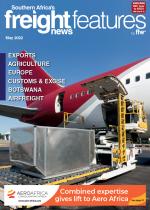The single constant to not merely surviving, but critically, thriving in an international trade environment, is the access to information. Importers and exporters have access to an array of information, which is accessible at the mere click of a button. However, the ultimate challenge is to convert the information into knowledge. Importers and exporters seem to expect that important information will be brought to them, rather than that they have to be alert to the existence of the information. Information informs a changing international trade environment. As to what future changes there will be, that is anyone’s guess, for no informed decision is possible. There are simply too many variables for such a prediction.So, rather that trying to predict or anticipate future changes, consider the changes that are either announced by government departments or agencies, and those which are under consideration. To be able to do this requires a proactive approach, and the seeking of information. As to where to start, there is no better place than the company that has a track record of bringing customs and excise news to importers and exporters, having first launched a dedicated weekly column, ‘Duty Calls’, nearly a quarter of a century ago. In its new incarnation, as part of Freight News, it is now published as ‘Customs Buzz’.This is part of the puzzle. What importers and exporters need to do is to personalise this information against their own goods information. As a consideration, acquire trade statistics from the South African Revenue Service (Sars) and consider this against their import duty, excise duty, and Value-Added Tax (VAT) liabilities. This should then be considered against South Africa’s f luctuating currency and the cost implications that this has. Here the controllable and uncontrollable should be considered, with the action focused on the controllable. It could take many forms, for example looking at possible import duty and excise duty reductions and considering existing customs provisions – special customs procedures, tariff classifications, rules of origin, and customs valuations. This is by no means an exhaustive list. Forget about the challenges, trends, and the outlook and rather focus on the here and now, and what you can inf luence. As an importer and an exporter your existence is primarily because there is a market for your goods, which should be protected, and nurtured. At present, the full impact of the Russia Ukraine conf lict is unknown, it is anyone’s guess. The only thing that can be said with certainty is that there will be fuel, and as a consequence, transport increases.If you want to be the first in the know about the changing South African trade environment, you may want to bookmark www.sars.gov.za/customs-and-excise/, which warrants a daily visit, as does www.gov.za, the South African Government’s website. On the international front consider the premier international trade organisation’s www.wcoomd.org, www.wto.org, www.iccwbo.org, and www.intracen.org.

